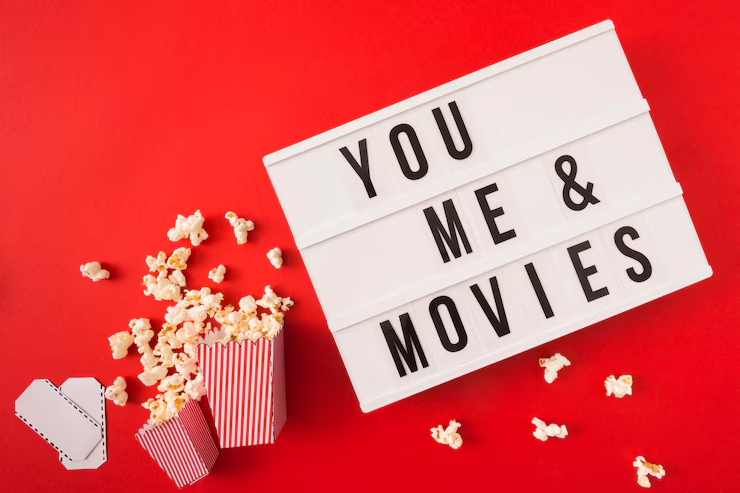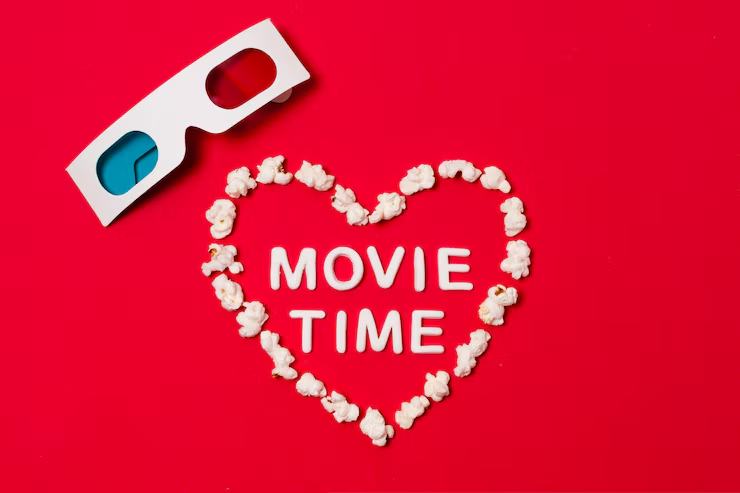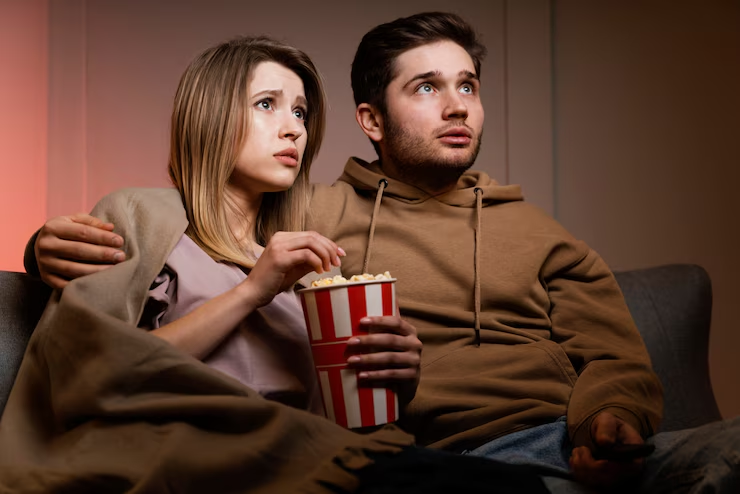Real Love Movie: Is It Realistic Romance?
Have you ever finished a romantic movie, sighing dreamily, only to realize your own love life feels… a little less cinematic? We’ve all been there. The grand gestures, the instant connection, the unwavering devotion – it’s intoxicating! But how much of what we see on screen actually mirrors real love Movies? As humans, we’re drawn to stories, and love stories, in particular, hold a powerful allure. But sometimes, those stories can set expectations that are, well, unrealistic. Let’s dive into the world of movies depicting love, focusing particularly on Mary J. Blige’s “Real Love” and exploring how it stacks up against the beautiful, messy, and wonderfully imperfect reality of relationships.
Table of Contents
What is “Real Love”? Beyond the HBO Movie
![Real Love Movie: Is It Realistic Romance? Still from the *real love movie* depicting a key scene [describe scene briefly].](https://www.lifethelove.com/wp-content/uploads/2025/06/Real-Love-Movie-683x1024.avif)
Before we get into the comparisons, let’s talk specifically about the real love movie produced by Mary J. Blige. Airing on HBO (and now available on streaming platforms), it follows Kendra (Ajiona Alexus), an 18-year-old embarking on her first semester at an HBCU in North Carolina. The storyline revolves around Kendra’s determination to prioritize her education while navigating the complexities of young love with Ben (Sinqua Walls).
The film isn’t just about romance, though. It delves into themes of self-discovery, the pressures young people face, and the importance of boundaries. It aims to portray a more nuanced experience of first love, grappling with issues like commitment, trust, and navigating real-life obstacles. Many viewers appreciated the film’s relatability, as highlighted in discussions online – as evidenced by the anticipation for the sequel, “Strength of a Woman”. But does even this portrayal get it right?
The Hollywood Formula vs. The Reality of Love
Movies, by their very nature, are condensed versions of life. They need to create drama, build tension, and resolve conflict within a relatively short timeframe. This often means sacrificing authenticity for the sake of a compelling narrative. Here’s a breakdown of common tropes in romance films and how they differ from genuine connections:
- Instant Connection: Films frequently depict “love at first sight,” a whirlwind romance where characters immediately recognize their soulmates. In reality, attraction often develops over time, built on shared experiences, mutual respect, and a growing understanding of each other’s flaws.
- Grand Gestures: From elaborate declarations of love to public displays of affection, movies excel at the grand gesture. While thoughtful acts are wonderful, consistent, everyday acts of kindness and support are the true cornerstones of a lasting relationship.
- Perfect Partners: Movie couples are often idealized, lacking the imperfections and disagreements that are inherent in any human connection. Dr. Rachel Glik’s work on movie love versus real love highlights this perfectly – real relationships require navigating conflict and accepting each other’s vulnerabilities.
- External Obstacles as the Primary Conflict: While external challenges (like disapproving families or career conflicts) can certainly strain a relationship, the real work often lies in internal obstacles: communication issues, differing values, and personal growth.
Table: Movie Love vs. Real Love
| Feature | Movie Love | Real Love |
|---|---|---|
| Connection | Instantaneous, electric | Gradual, built on shared experiences |
| Conflict | External, dramatic | Internal, requiring communication |
| Gestures | Grand, extravagant | Small, consistent acts of kindness |
| Imperfection | Often absent | Fully present, accepted |
| Timeline | Accelerated | Develops over time |
Analyzing “Real Love”: A Step Towards Authenticity?

“Real Love” attempts to break some of these classic tropes. Kendra’s journey is about balancing love with her ambition and defining her own boundaries. The film doesn’t shy away from depicting the challenges of maintaining a relationship while pursuing academic goals, and the characters grapple with realistic issues like peer pressure and accountability.
However, even with these efforts, the film still operates within a certain cinematic framework. The pacing is tighter, the stakes are higher, and the resolution feels…neater than life often allows. It’s a commendable effort to present a more relatable narrative, but it’s still a representation of reality, not reality itself.
The Impact of Media on Your Expectations
The constant bombardment of unrealistic portrayals of love can significantly impact your expectations. You might find yourself:
- Searching for a “spark”: Believing that instant chemistry is essential, overlooking potentially fulfilling relationships that develop more slowly.
- Waiting for a “savior”: Expecting your partner to complete you or fix your problems, rather than taking responsibility for your own happiness.
- Dismissing healthy relationships: Finding “normal” relationships boring or lacking because they don’t match the dramatic intensity of movie romances.
- Holding unrealistic standards: Judging potential partners against idealized versions of love presented in media.
If you consistently compare your relationship to the ones you see on screen, you’re setting yourself up for disappointment.
Beyond “Real Love”: Movies That Get It (Mostly) Right

While most rom-coms lean heavily into fantasy, some films offer a more grounded and relatable portrayal of love. Here are a few examples:
- “When Harry Met Sally…”: This classic explores the complexities of male-female friendships and the evolution of romantic feelings over time. It acknowledges that love isn’t always glamorous or straightforward.
- “Before Sunrise”: A beautifully simple film that captures the magic of a deep connection built on genuine conversation and shared curiosity.
- “Marriage Story”: A raw and honest depiction of the challenges of divorce, demonstrating that even love that once felt “right” can evolve and change.
- “Like Crazy”: This film portrays the struggles of a long-distance relationship, highlighting the sacrifices and compromises required to make it work.
Building a “Real Love” of Your Own: Practical Tips
So, how do you cultivate a relationship that resembles real life, not a movie script?
- Prioritize Communication: Open, honest, and vulnerable communication is the foundation of any strong relationship.
- Embrace Imperfection: Accept that both you and your partner will have flaws. Focus on celebrating your strengths and supporting each other’s growth.
- Build a Life Together (and Separately): Share common interests and goals, but also maintain your individuality.
- Practice Gratitude: Appreciate the small things your partner does for you.
- Seek Support: Don’t be afraid to seek therapy or counseling if you’re struggling. Sometimes a little perspective, or a humorous quote, can help!
Is Real Love Possible?
Absolutely. Real love isn’t about finding the “perfect” person; it’s about building a deep, meaningful connection with someone who is willing to grow with you, through the good times and the bad. The journey of love is complex, messy, and often unpredictable, but it’s also incredibly rewarding.
Don’t let the unrealistic expectations set by movies diminish your capacity for genuine connection. Focus on building a relationship based on authenticity, respect, and mutual growth, and you’ll find that the real thing is far more beautiful than anything you’ve ever seen on screen.
FAQ: About the “Real Love Movie” & Reality
Q: Does the “real love movie” accurately depict relationships?
A: Mary J. Blige’s “Real Love” is a step toward authenticity, portraying realistic struggles alongside romance, but it’s still a condensed cinematic version of life. It doesn’t capture the full nuance and messiness of long-term relationships.
Q: Are movie portrayals of love harmful?
A: Yes, constantly consuming unrealistic love stories can lead to unhealthy expectations and disappointment in your own relationships.
Q: What are the key differences between movie love and real love?
A: Movie love is often idealized, instantaneous, and focused on grand gestures, while real love is gradual, built on mutual respect, and sustained by consistent effort.
Q: Where can I find more resources about healthy relationships?
A: Explore our blog at Life The Love for articles, tips, and inspiration. You can also find more resources on Pinterest, Facebook, Instagram, Threads, X and Medium.
Your Turn: What Does Real Love Mean To You?
Now, we want to hear from you! What are your thoughts on the portrayal of love in movies? Have you ever felt disappointed when your real-life relationships didn’t live up to cinematic expectations? Share your experiences and insights in the comments below! Let’s create a conversation about defining and achieving real love, together. Don’t forget to share this article with anyone who might benefit from a little dose of reality amidst all the romance!

